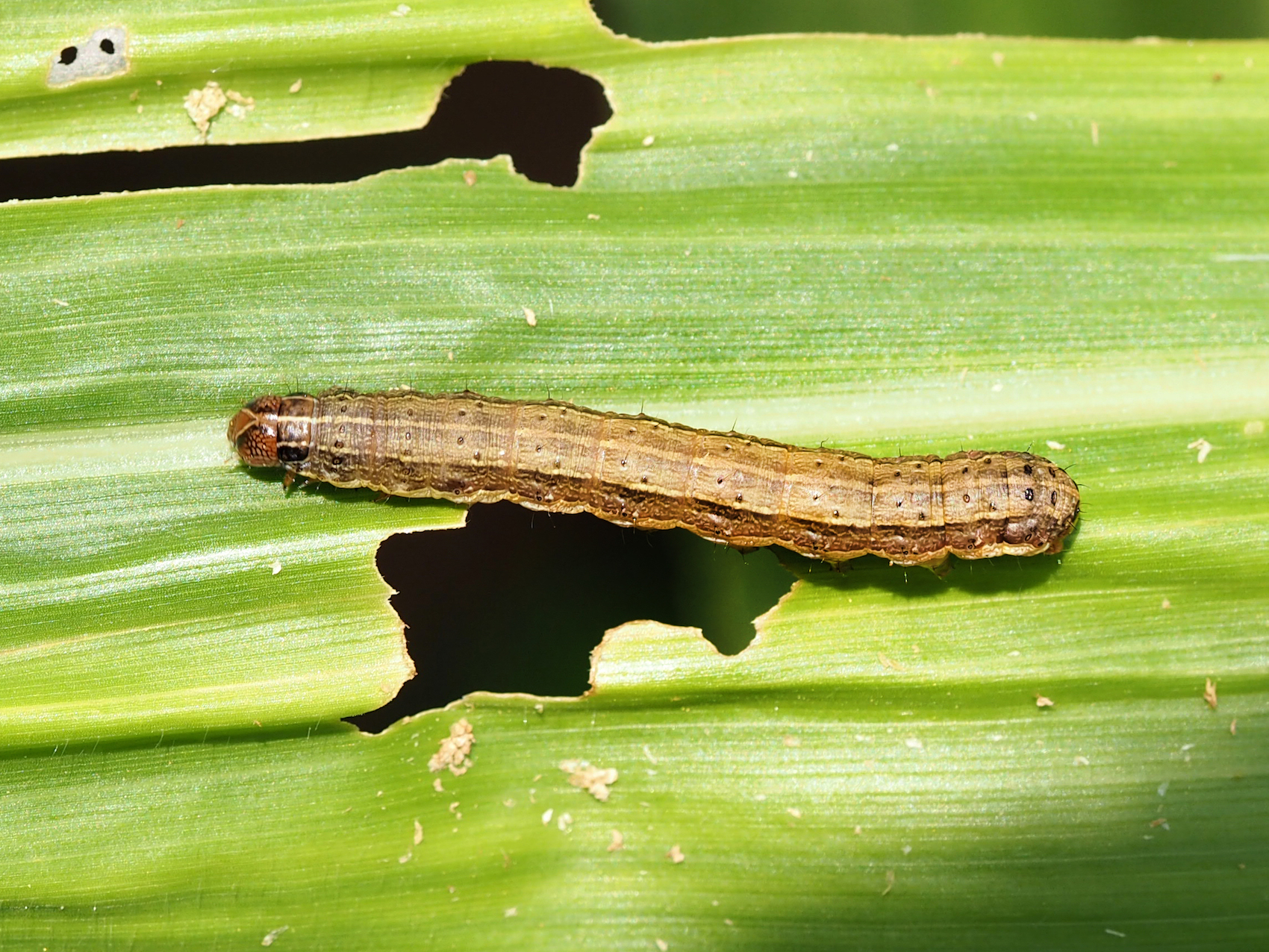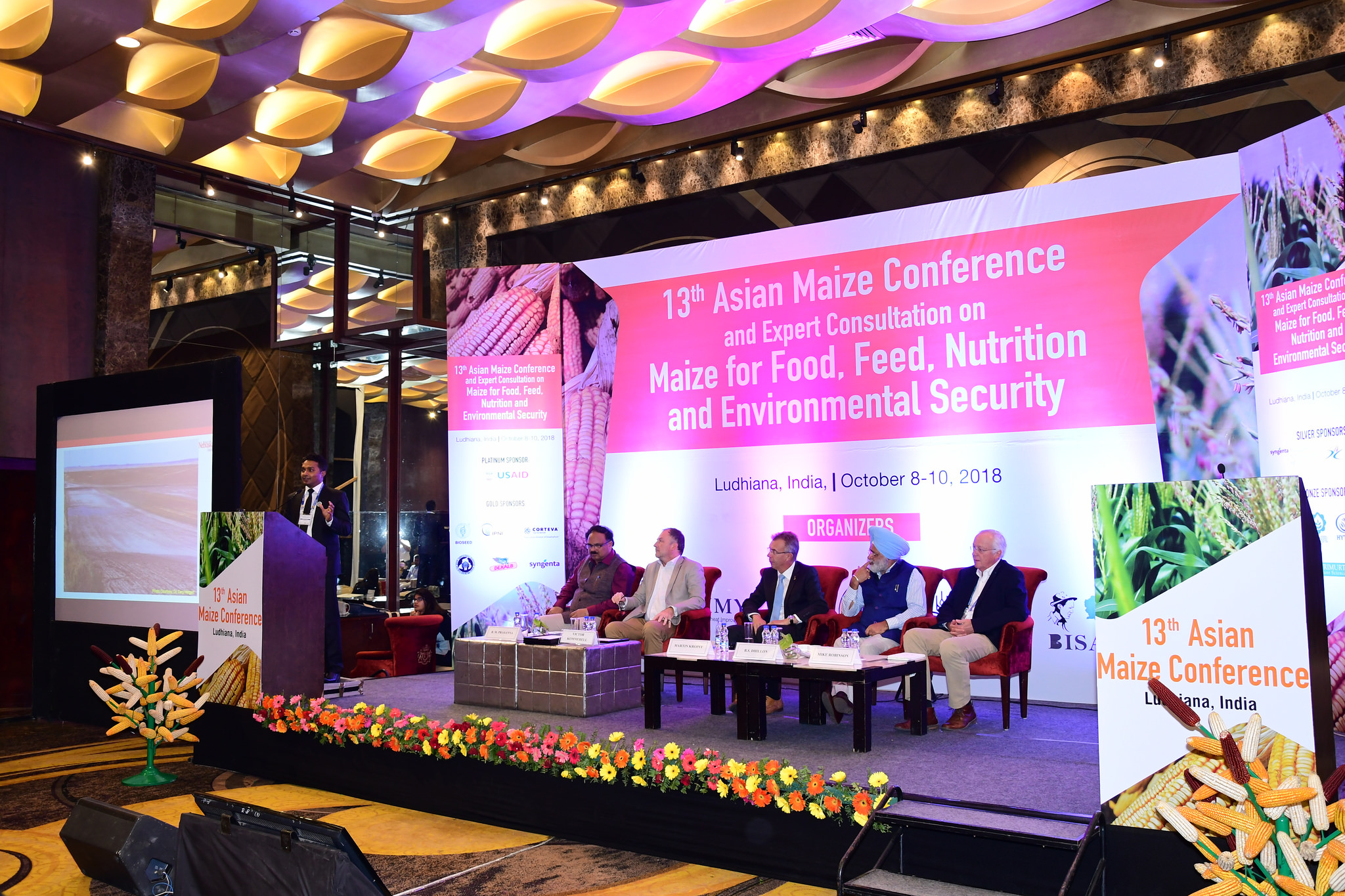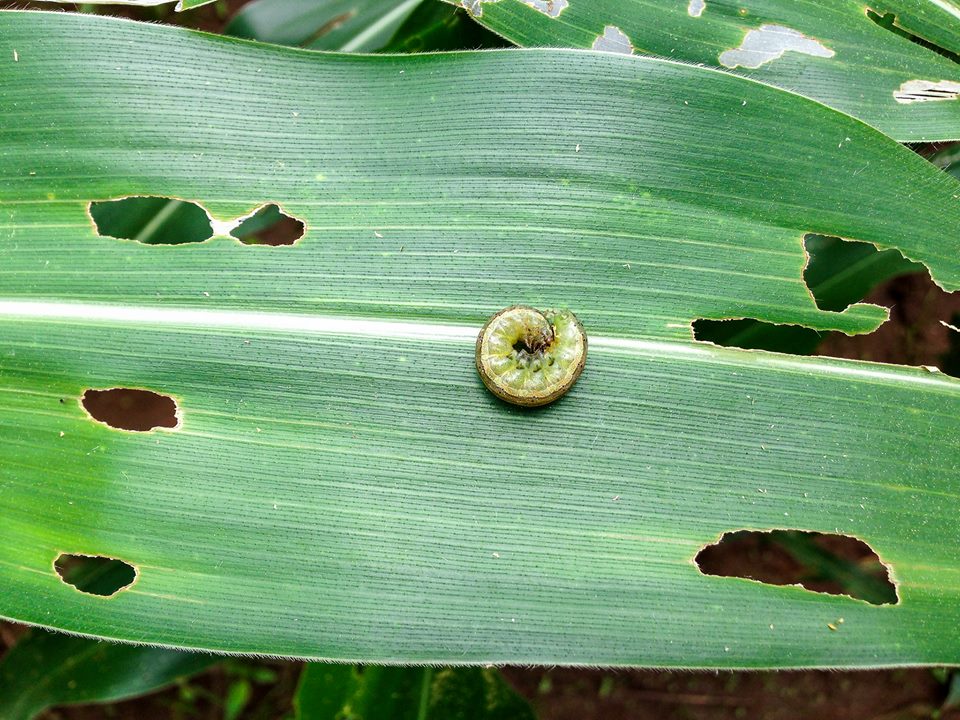NAIROBI (Kenya) — As the invasion of the voracious fall armyworm threatens to cause US$3-6 billion in annual damage to maize and other African food staples, 35 organizations announced today the formation of a global coalition of research for development (R4D) partners, focused on developing technical solutions and a shared vision of how farmers should fight against this pest. After causing extensive crop damage in Africa, the presence of the fall armyworm was recently confirmed in India.
The new Fall Armyworm R4D International Consortium will serve to develop and implement a unified plan to fight this plant pest on the ground. Focusing on applied research, the consortium joins other global efforts and coordinates with international bodies working against this pest. The Fall Armyworm R4D International Consortium will be co-led by the International Maize and Wheat Improvement Center (CIMMYT) and the International Institute of Tropical Agriculture (IITA).
“This pest caught us all by surprise and it continues eating away at maize and other crops that are important for the food security and livelihoods of African farmers. We can no longer afford to work in isolation,” said the Director General of CIMMYT, Martin Kropff. “Many organizations in the public and private sector are working intensively on different approaches,” he added, “but farmers are not interested in half solutions. They want to have integrated solutions, supported by strong science, which work effectively and sustainably.”
Consortium members will coordinate efforts to pursue a wide range of options for fighting fall armyworm, with a strong emphasis on integrated pest management, which includes host plant resistance, environmentally safer chemical pesticides, biological and cultural control methods, and agronomic management.
The Deputy Director General for Partnerships for Delivery at IITA, Kenton Dashiell, said that efforts are underway to identify and validate biopesticides, or “very safe products that don’t harm the environment or people but kill the pest.” In some areas, Dashiell explained, farmers may need to consider temporarily switching to a food crop that is not susceptible to armyworm.

The Vice President of Program Development and Innovation at the Alliance for a Green Revolution in Africa (AGRA), Joe DeVries, said his organization is serving as a bridge between scientists and farmers. AGRA is developing a network of “village-based advisers” across 15 countries who will be connected to farmers via a “private sector-led” extension system to help farmers deal with fall armyworm infestations. AGRA and its partners already have trained more than 1,000 advisers and expect to add several thousand more who can “quickly bring to farmers the latest knowledge about the best methods of control.”
The Chief Scientist at the Bureau of Food Security of the United States Agency for International Development (USAID), Rob Bertram, expressed his excitement about the formation of the consortium, both for its immediate relevance for fighting fall armyworm and as a forerunner of “more resilient” agriculture systems in Africa, which is likely to see similar threats in the future. CIMMYT and USAID, together with global experts, developed an integrated pest management guide to fight fall armyworm, available in English, French and Portuguese.
The Director General of Development at the Center for Agriculture and Biosciences (CABI), Dennis Rangi, noted that the ability for people to more rapidly travel around the world is also making it easier for plant pests to hop from continent to continent. “Today we are focusing on the fall armyworm, tomorrow it could be something different,” he said.
The members of the Fall Armyworm R4D International Consortium will hold their first face-to-face meeting on October 29-31, 2018, in Addis Ababa, Ethiopia. This international conference will be organized by CIMMYT, IITA, AGRA, CABI, FAO, icipe, FAO, USAID and the African Union Commission.
The technical coordinators of the consortium are B.M. Prasanna, Director of the CGIAR Research Program MAIZE and Global Maize Program at CIMMYT, and May-Guri Saethre, Deputy Director General of Research for Development at IITA.
PARTNERS OF THE FALL ARMYWORM R4D INTERNATIONAL CONSORTIUM
Leads:
- International Maize and Wheat Improvement Center (CIMMYT)
- International Institute of Tropical Agriculture (IITA)
Members:
- African Agricultural Technology Foundation (AATF)
- Agricultural Research Service (ARS) of the United States Department of Agriculture (USDA)
- Alliance for a Green Revolution in Africa (AGRA)
- Bayer
- Bill & Melinda Gates Foundation
- Biorisk Management Facility (BIMAF)
- Brazilian Agricultural Research Corporation (Embrapa)
- Center for Agriculture and Biosciences (CABI)
- Corteva
- CropLife International
- Deutsche Gesellschaft für Internationale Zusammenarbeit (GIZ)
- Food and Agriculture Organization of the United Nations (FAO)
- Forum for Agricultural Research in Africa (FARA)
- International Centre of Insect Physiology and Ecology (icipe)
- International Crops Research Institute for the Semi-Arid Tropics (ICRISAT)
- Lancaster University
- Leibniz Institute DSMZ (German Collection of Microorganisms and Cell Cultures)
- Michigan State University (MSU)
- Mississippi State University (MSU)
- North-West University (NWU)
- Norwegian Institute of Bioeconomy Research (NIBIO)
- Oregon State University (OSU)
- Rothamsted Research
- Syngenta
- UK Department for International Development (DFID)
- United States Agency for International Development (USAID)
- University of Bonn
- University of Florida (UFL)
- University of Greenwich
- Virginia Polytechnic Institute and State University (Virginia Tech)
- Wageningen University and Research (WUR)
- West and Central African Council for Agricultural Research (CORAF/WECARD)
- World Agroforestry Centre (ICRAF)
MEDIA CONTACTS
For more information, please contact:
Geneviève Renard, Head of Communication, CIMMYT
g.renard@cgiar.org, +52 (55) 5804 2004, ext. 2019.
Katherine Lopez, Head of Communication, IITA
k.lopez@cgiar.org, +234 0700800, ext. 2770
MULTIMEDIA
Photos of the fall armyworm are available here:
https://www.flickr.com/photos/cimmyt/sets/72157677988561403

 Capacity development
Capacity development 
